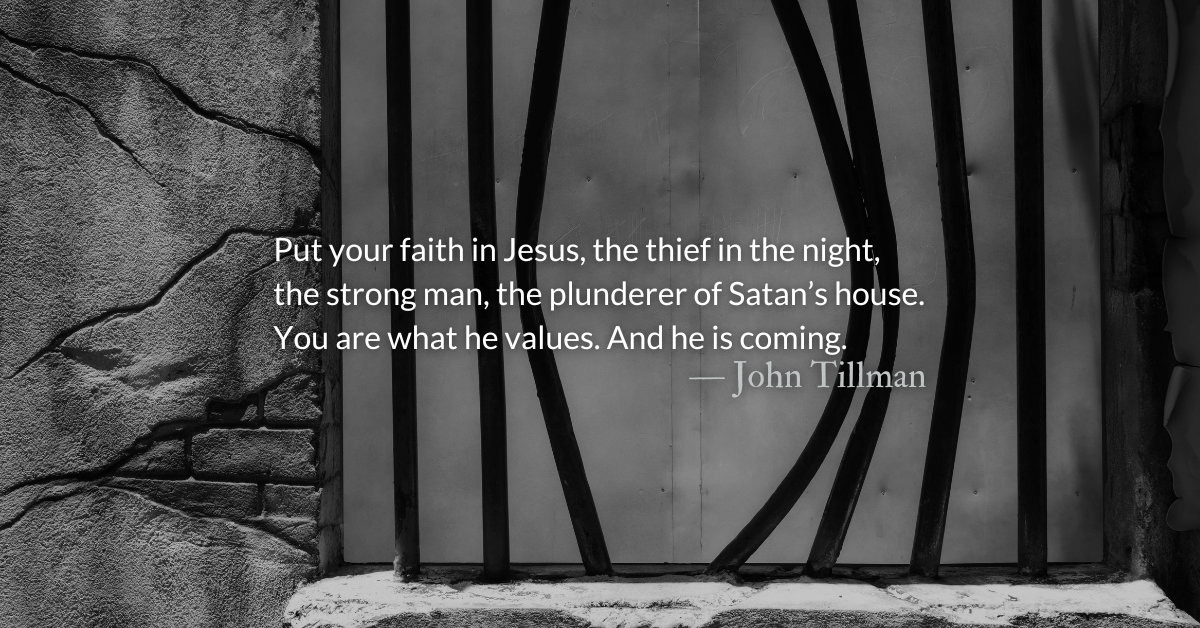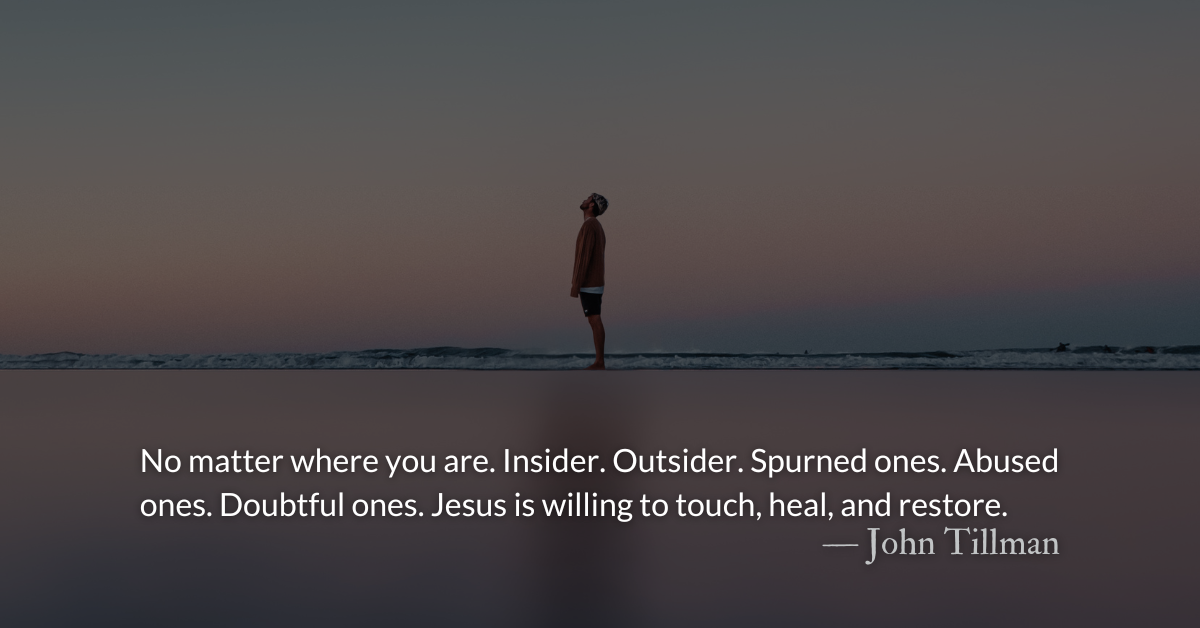Scripture Focus: Matthew 22.41-45
41 While the Pharisees were gathered together, Jesus asked them, 42 “What do you think about the Messiah? Whose son is he?”
“The son of David,” they replied.
43 He said to them, “How is it then that David, speaking by the Spirit, calls him ‘Lord’? For he says,
44 “ ‘The Lord said to my Lord:
“Sit at my right hand
until I put your enemies
under your feet.” ’
45 If then David calls him ‘Lord,’ how can he be his son?” 46 No one could say a word in reply, and from that day on no one dared to ask him any more questions.
Reflection: Call on the Son of David
By John Tillman
“Son of David” occurs ten times in Matthew’s gospel.
Once, it is directed at Joseph, instructing him to take Mary as his wife and Jesus as his son. Jesus, like his earthly father, Joseph, was a literal, physical son of David. So were hundreds of thousands. At the Nativity, Bethlehem was flooded with sons of David who came there to be counted, but only one was also the Son of David.
Eight times, “Son of David” is directed at Jesus.
Two blind men followed Jesus, saying, “Have mercy on us, Son of David!” (Matthew 9.27-31)
After seeing Jesus heal a demon-possessed, blind, and mute man, the crowd asked, “Could this be the Son of David?” (Matthew 12.22-24)
A foreigner begged on behalf of her daughter, “Lord, Son of David, have mercy on me!” (Matthew 15.21-28)
Two blind men cried from the side of the road, “Lord, Son of David, have mercy on us!” (Matthew 20.29-31)
The crowds welcomed him to Jerusalem, crying, “Hosanna to the Son of David!” (Matthew 21.8-9)Its last mention is when Jesus confronted the Pharisees about the Messiah’s origin and identity. Jesus claimed the Messiah had to be more than a natural child of David. Calling himself the Son of David and accepting the title from others is one of Jesus’ most direct claims of deity. “Son of David” is a cry appealing to Jesus’ messianic identity which includes healing. But why is that?
David was many positive things—poet, musician, fighter, leader. But he was never a healer. He was a man of blood, not bandages. Are we calling out for the wrong kind of “son of David?”
The true Son of David proves himself not in battle against flesh and blood but against sin on the cross. The true Son of David spills his blood instead of his enemies’ blood. He heals rather than harms. He saves rather than condemns. He includes rather than excludes. He rescues rather than takes revenge.
It is because of his identity as the Son of David that we can cry out to Jesus for healing, for help, and to enter his kingdom. His kingdom is from another place. We are already there, yet on our way. It is present among us, yet coming in the distance.
Call on the true Son of David! Hosanna to the Son of David! Have mercy on us!
Divine Hours Prayer: The Refrain for the Morning Lessons
Blessed is he who comes in the name of the Lord; we bless you from the house of the Lord. — Psalm 118.26
– From The Divine Hours: Prayers for Summertime by Phyllis Tickle.
Today’s Readings
Amos 2 (Listen 2:12)
Matthew 22 (Listen 4:56)
Read more about An Accepting Father
The “son of David,” Joseph, accepted The Son of David, Jesus, as his son.
Read The Bible With Us
It’s never too late to join our Bible reading plan. Immerse in the Bible with us at a sustainable, two-year pace.










